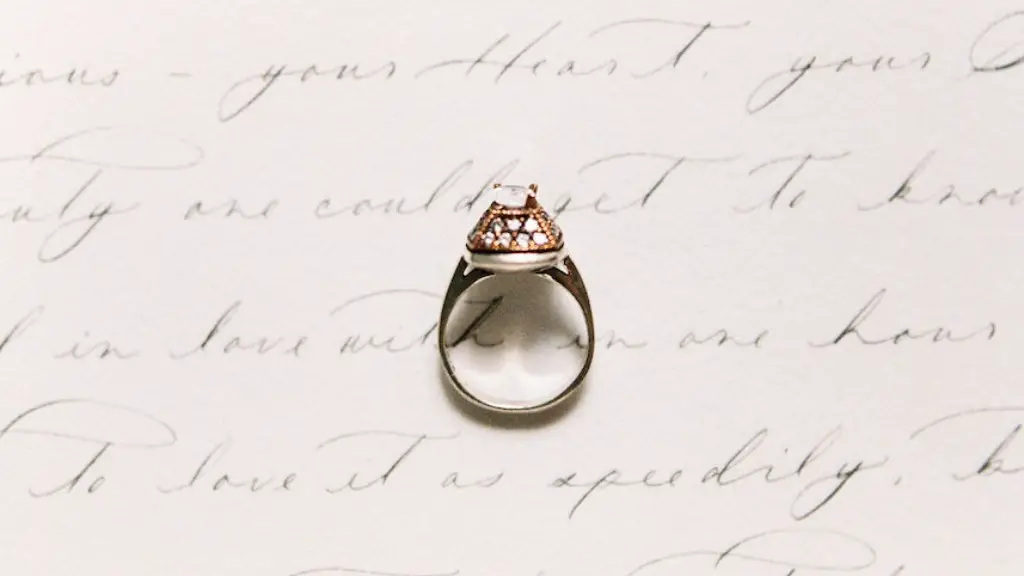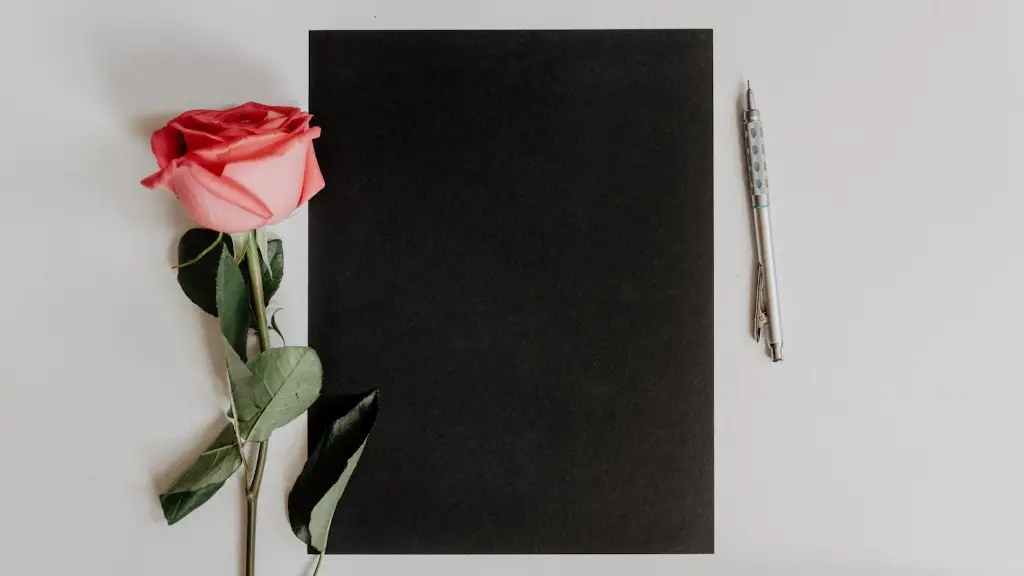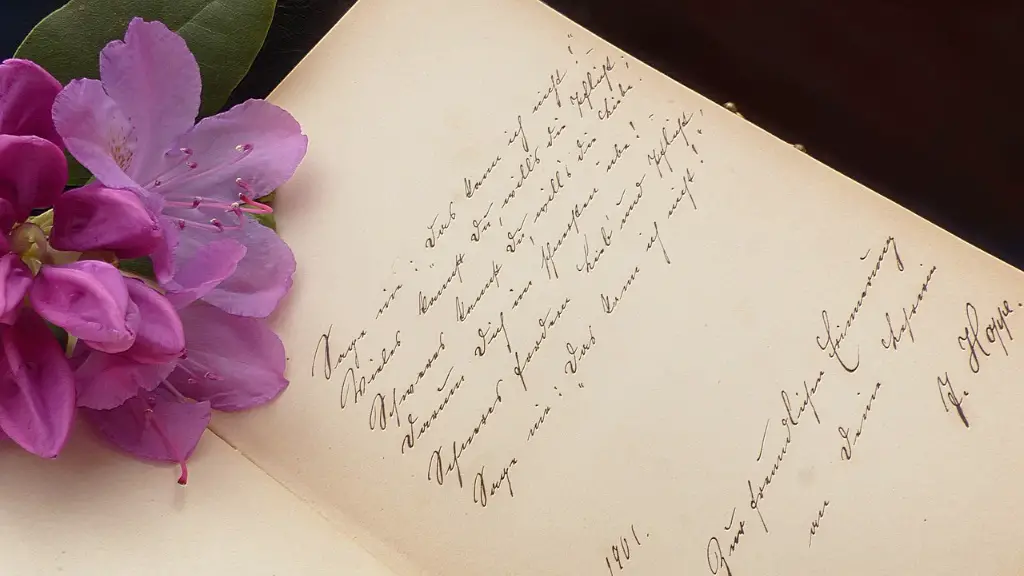What Is Lyric Poetry?
Lyric poetry is a form of poetry that is meant to evoke emotions through the use of words. It is written in the first person and tells the story of a particular speaker, using vivid imagery and detailed description. Lyric poetry is often used to express feelings of love, loss, joy, sorrow and many other emotions. It is one of the oldest forms of poetry, with roots stretching back to ancient Greece.
Definition
Lyric poetry is defined as any poem that expresses the thoughts and feelings of the poet in the first person. It is written in lines or stanzas, each one of which expresses a single thought or emotion. Lyric poetry often has a musical quality to it, as words are used to tell a story in a poetic way. The lyrics of songs are also considered a type of lyric poetry, as they are usually written in the first person and are meant to evoke emotion.
History
The roots of lyric poetry can be traced back to Ancient Greece, where it was used by poets such as Sappho and Pindar to express their emotions. During the Middle Ages, lyric poetry was used to tell stories in ballads and other forms of narrative poetry. In the Renaissance, the form was adopted by poets such as William Shakespeare and Christopher Marlowe, who wrote some of the most famous examples of lyric poetry in the English language.
Modern Lyric Poetry
Modern lyric poetry still has many of the same qualities as its ancient predecessors. It is written in the first person and is meant to express emotions through the use of vivid imagery and detailed description. Modern lyric poetry is often found in songs, but it can also be found in books or even online. Poets such as Langston Hughes, T. S. Eliot and Maya Angelou have all written famous examples of lyric poetry in the modern era.
Form and Structure
The form and structure of lyric poetry is relatively simple. Lyric poetry is usually written in lines or stanzas, with each line or stanza expressing a single thought or emotion. The structure of the poem may be regular or irregular, depending on the preference of the poet. The length of the poem varies, but most lyric poems are relatively short and can range from just a few lines to several pages.
Language and Imagery
The language used in lyric poetry is meant to evoke emotion in the reader or listener. Poets often use vivid imagery and imaginative language to create a feeling or mood in their poem. They often use metaphor and similes to help illustrate the poem, adding to its overall impact. The use of powerful words and word choice is also key in creating an effective lyric poem.
Themes and Ideas
The themes and ideas explored in lyric poetry often reflect the thoughts and emotions of the poet. Common themes include love, loss, death, joy, sorrow, life and many others. Lyric poems can also be used to express political and social themes, such as those found in the works of protest singers and rappers.
Analysis
Lyric poetry has been around for centuries and is one of the oldest forms of poetry. It is a powerful way to express emotions and tell stories in a poetic way. The language used in lyric poetry is meant to evoke emotions in the reader or listener, and the use of vivid imagery and imaginative language can add to its overall impact.
Purpose
The purpose of lyric poetry is to express emotions and tell stories in a poetic and impactful way. By using words that evoke certain emotions, poets can create powerful works of art that can be understood by readers or listeners. Lyric poetry is still a popular form of expression today, with many poets writing modern works in the form.
Structure
Lyric poetry is usually written in lines or stanzas, with each line expressing a single thought or emotion. The structure of the poem can be regular or irregular depending on the preference of the poet. Meters and rhyme schemes are often used to create a more musical effect in the poem, and more complex forms can also be used such as sestinas and sonnets.
Poets and Works
Some of the most famous examples of lyric poetry can be found in the works of William Shakespeare, Christopher Marlowe, and Langston Hughes. T. S. Eliot and Maya Angelou have also written works of lyric poetry in the modern era. Poets who write in the form of lyric poetry are often able to communicate their emotions and ideas in a powerful and impactful way.


